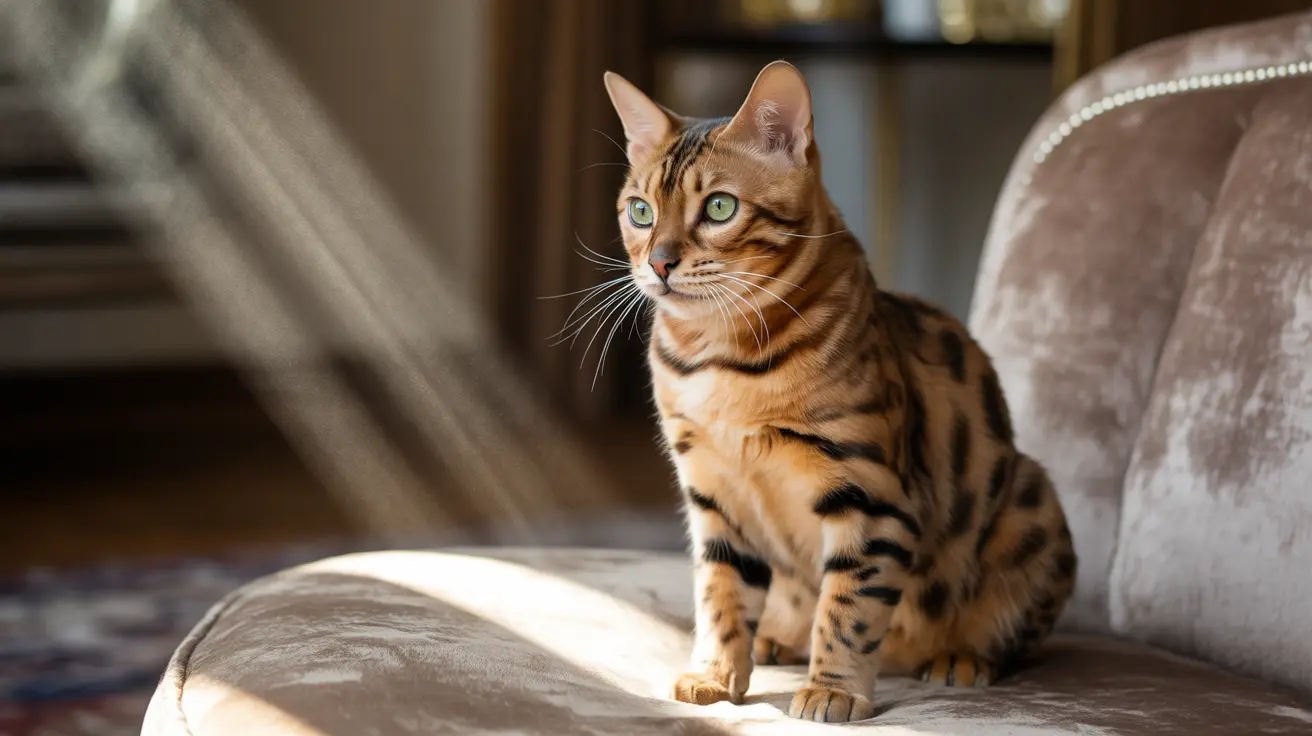If you've noticed your cat acting weird lately, you're not alone. Cats are complex creatures, and their behavior can sometimes seem mysterious or concerning to their owners. From sudden changes in personality to strange new habits, understanding why your cat is acting differently is crucial for ensuring their health and happiness.
In this comprehensive guide, we'll explore the various reasons behind unusual cat behavior, help you distinguish between normal quirks and potential problems, and provide expert guidance on when to seek veterinary care.
Common Causes of Unusual Cat Behavior
Medical Issues
Many times, weird behavior in cats stems from underlying health conditions. Urinary tract infections, dental problems, and thyroid issues can cause dramatic behavioral changes. If your normally friendly cat becomes aggressive or starts hiding, it could be their way of communicating physical discomfort or pain.
Environmental Stressors
Cats are creatures of habit, and changes in their environment can trigger unusual behavior. Moving to a new home, rearranging furniture, or introducing new pets can cause stress-related behaviors like excessive grooming, inappropriate elimination, or increased vocalization.
Signs Your Cat's Behavior Needs Attention
Physical Changes
Watch for changes in appetite, grooming habits, or activity levels. A cat that suddenly stops eating, grooms excessively, or becomes unusually lethargic may be experiencing health issues requiring veterinary care.
Social Changes
If your cat begins avoiding interaction, showing aggression, or displaying fearful behavior, these could be signs of stress or illness. Pay attention to changes in their relationships with other pets or family members.
Normal vs. Concerning Behaviors
Natural Cat Quirks
Some "weird" behaviors are actually normal feline traits. Zoomies (sudden bursts of energy), staring at seemingly nothing, and kneading are typical cat behaviors rooted in their natural instincts.
Red Flags
Other behaviors warrant immediate attention. These include:
- Sudden aggression or personality changes
- Eliminating outside the litter box
- Excessive vocalization
- Self-destructive behaviors
- Significant changes in eating or drinking habits
Solutions and Prevention
Environmental Enrichment
Provide plenty of mental and physical stimulation through toys, climbing structures, and interactive play sessions. This can help prevent boredom-related behavioral issues and reduce stress.
Maintaining Routine
Keep your cat's environment stable and predictable. Maintain consistent feeding times, clean litter boxes regularly, and try to minimize dramatic household changes when possible.
Frequently Asked Questions
Why is my cat acting weird after moving to a new home?
Cats are territorial animals and need time to adjust to new environments. This behavior is normal and usually temporary. Help them adapt by maintaining familiar routines and providing safe spaces to hide.
How can I stop my cat from urinating outside the litter box?
First, rule out medical issues with a veterinary check-up. Then, ensure the litter box is clean, easily accessible, and in a quiet location. Consider adding more boxes or trying different litter types.
What are the common causes of aggression in cats, and how can I address them?
Aggression can stem from fear, territorial disputes, pain, or illness. Address the underlying cause through veterinary care, environmental modification, or behavior modification techniques as appropriate.
Why does my cat stare at seemingly nothing, and should I be concerned?
Cats can see and hear things humans can't detect. This behavior is usually normal unless accompanied by other concerning symptoms. They might be tracking tiny insects, dust particles, or responding to sounds outside human hearing range.
How can I determine if my cat's unusual behavior is due to a medical issue or stress?
Monitor the timing and context of behavioral changes. Sudden changes often indicate medical issues, while gradual changes might suggest stress. When in doubt, consult your veterinarian for proper diagnosis.
Conclusion
While some weird cat behaviors are harmless quirks, others may signal underlying problems requiring attention. By understanding your cat's normal behavior patterns and staying alert to significant changes, you can ensure their well-being and strengthen your bond with your feline friend. When in doubt, always consult with your veterinarian to rule out medical issues and receive proper guidance for addressing behavioral concerns.






